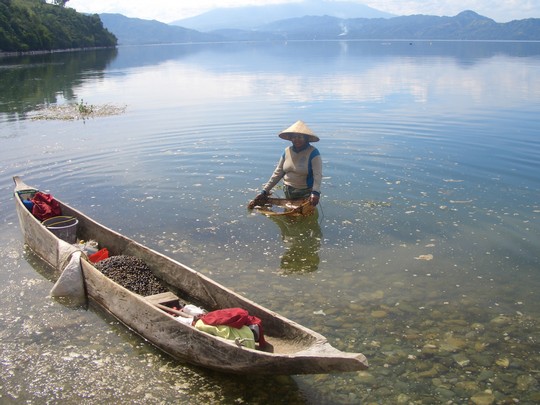As Indonesia’s rural poor are increasingly threatened by dispossession, is it time to adopt a more radical agenda for women and the environment?
Rebecca Elmhirst
 |
Fisherwomen are hard-hit by environmental degradation in West Sumatra.Rebecca Elmhirst |
During International Women’s Day this year, women representing four of Indonesia’s leading environmental and agrarian NGOs called for women across the archipelago to unite and demand a more just and environmentally sustainable economic order. In a joint statement, representatives from WALHI (the Indonesian Forum for the Environment), the Indonesian Peasants Union (SPI), Indonesian Green Union (SHI) and People’s Coalition for Fisheries Justice (KIARA) argued that as women bear the brunt of environmental problems, it is women who should take the lead in preventing or solving them.
While women’s NGOs have tended to focus on issues such as health, economic empowerment and domestic violence, this statement is indicative of a new effort to link women with environmental and social justice agendas. This new alliance is inspired by the radical values of ecofeminism, according to which the exploitation of women and the environment is inextricably linked to the capitalist economic system. But at the same time this is just one of an array of competing agendas currently being promoted in Indonesia which attempt to connect women with the environment in a variety of ways.
Women and environmental crises
WALHI, SPI, SHI and KIARA’s joint statement echoes successive reports documenting how women have been disproportionately affected











